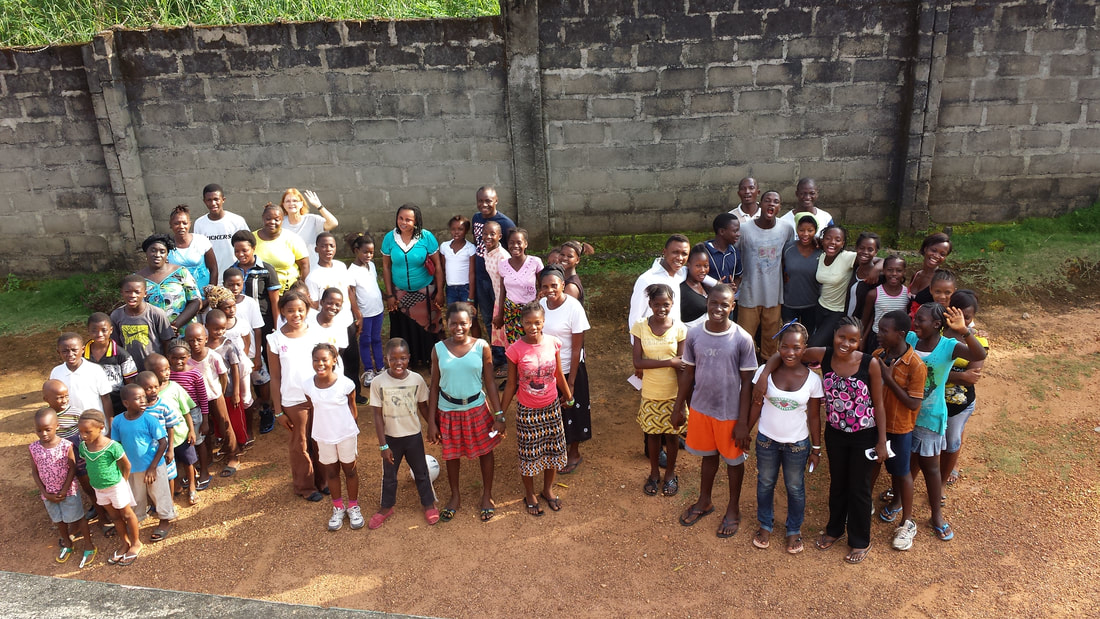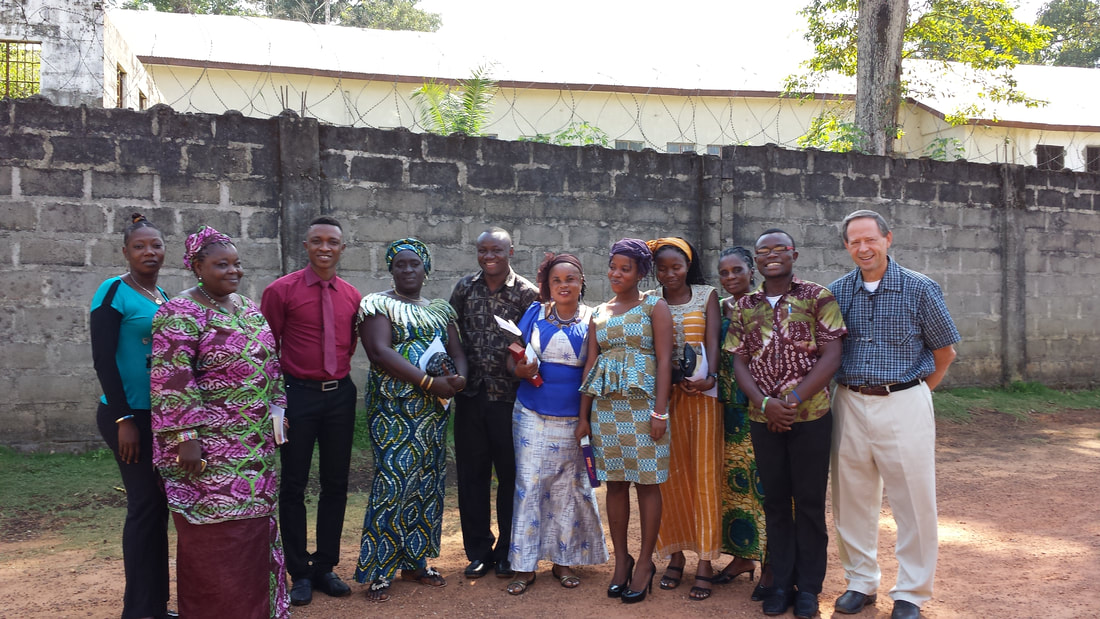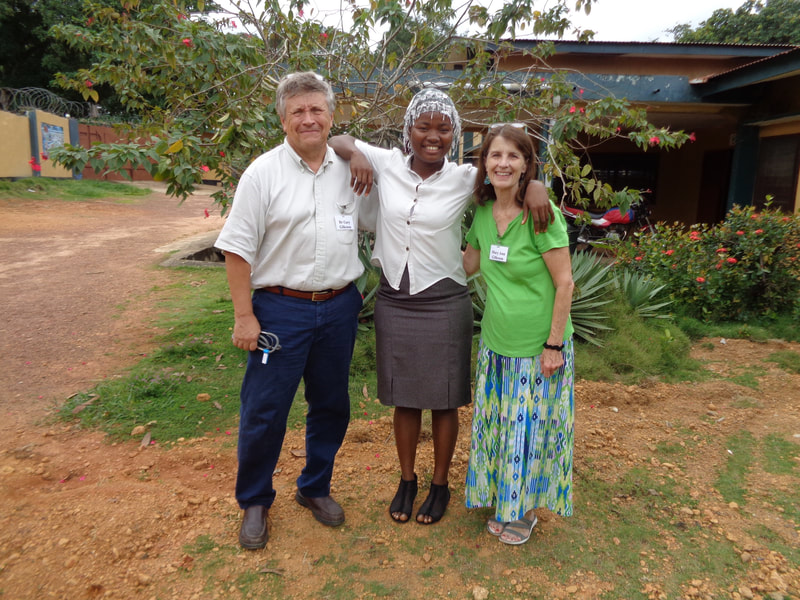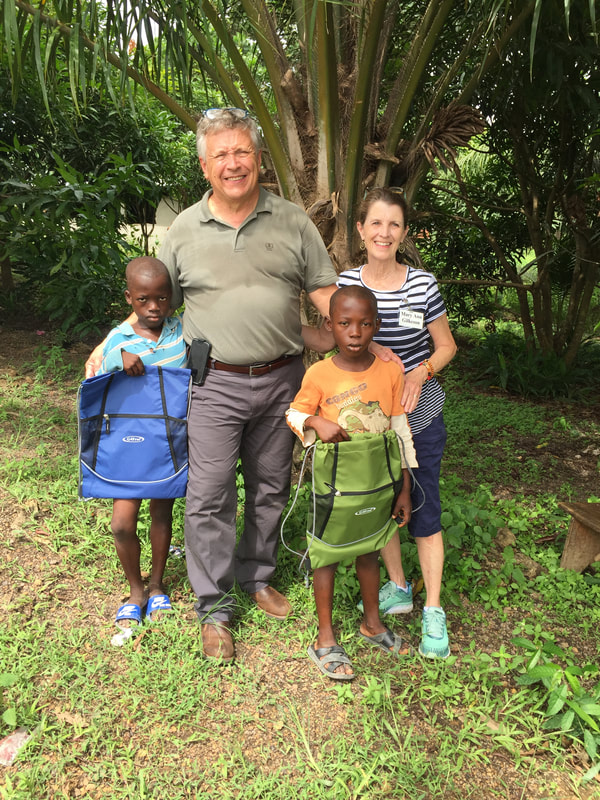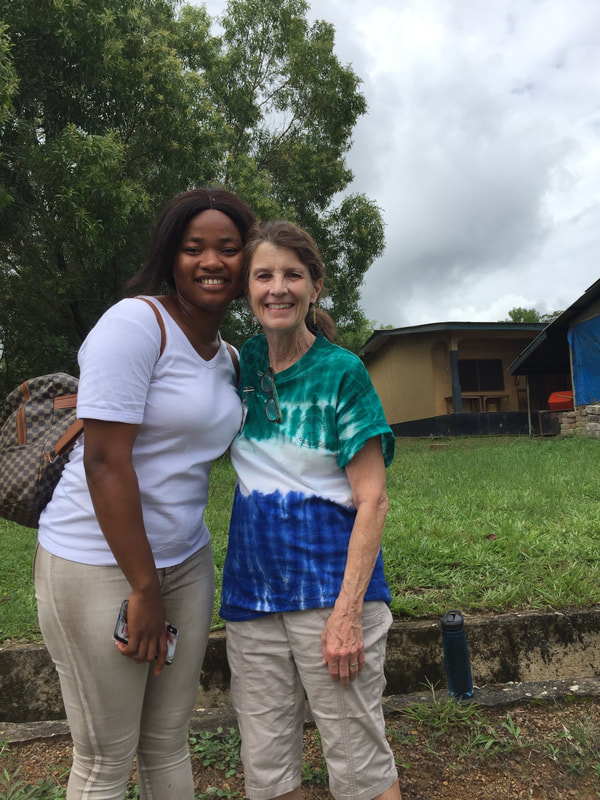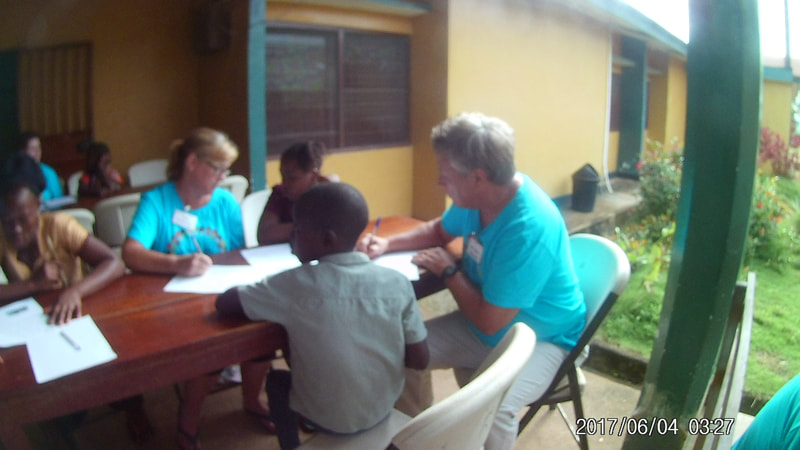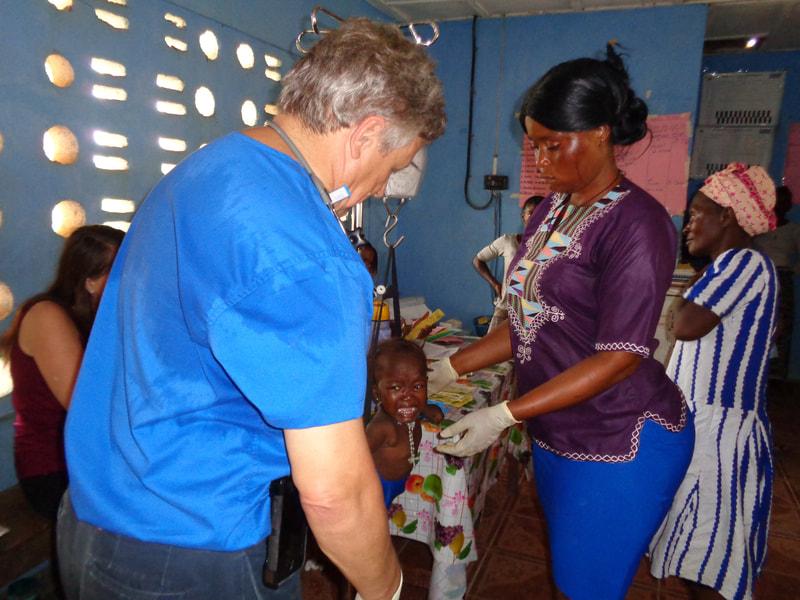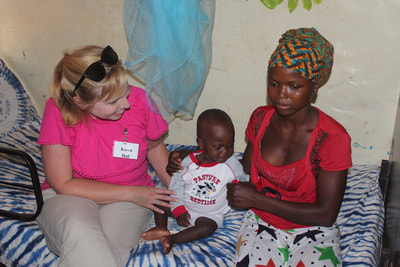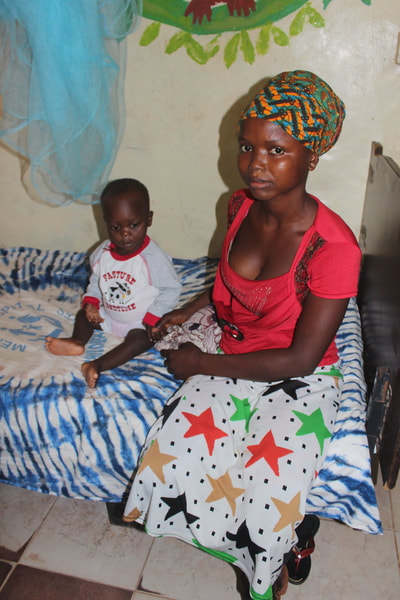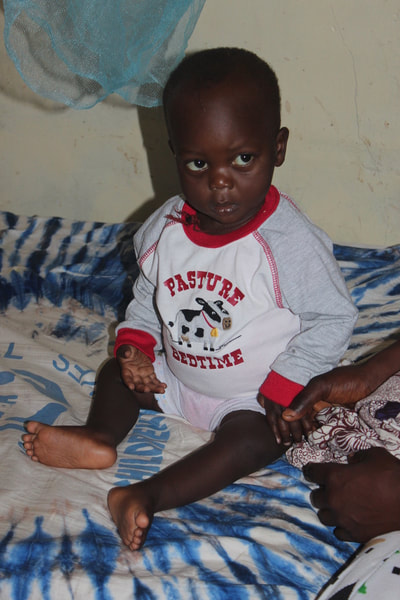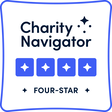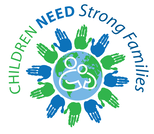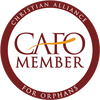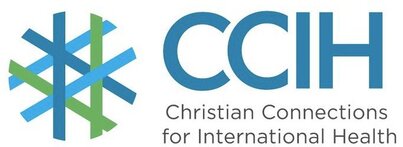|
During the Ebola crisis of 2014-2015, Patty and Allen Morell, long time missioners and partner church representatives for Osterville UMC, stayed with the children in the residential program to shepherd them through a very dark time. Here, the Morells share the scriptural principles that kept them going. The times in which we are living may feel very strange to most Americans. We got a good taste of how it feels to be quarantined for months at a time back in 2014 and 2015 during the Ebola Virus outbreak in Sierra Leone. When many international volunteers, NGOs, as well as some Sierra Leoneans themselves were leaving the country in fear of Ebola, we felt we could not desert our Child Rescue Centre family in Bo. We made a very prayerful and conscious decision to stay in Sierra Leone. In August 2014 with the blessing of the Sierra Leone UMC Bishop John Yambasu and Helping Children Worldwide, we went into lockdown with 44 Child Rescue Centre resident children, and 9 CRC staff plus 5 security guards, all who volunteered and committed to live inside the compound 24 hours per day, not knowing how long the Ebola Virus might be active in Sierra Leone.
How did the CRC keep 60 people in lockdown for eight months safe and healthy, keep up everyone’s spirits, as well as prevent boredom? It was accomplished in ten very intentional ways.
When the lock down ended on April 22nd, 2015, after the entire country had gone through 42 consecutive days (2 cycles) of no new cases of Ebola, the CRC gates were enthusiastically opened and all of the staff returned that day for Wednesday Afternoon Devotions. Together we celebrated this joyous, long anticipated occasion! We all sang a song called, “Together Again.” There was not a dry eye in the Great Hall. The next day all of the CRC Aunties left the compound for the first time in eight months, to go home to their own families. Other CRC women staff volunteered to stay with the children that night. The commitment of the devoted CRC staff and security guards was remarkable and totally selfless. The CRC children and staff, and all Sierra Leoneans who lived through the Ebola outbreak in 2014 and 2015, have an amazing testimony to share. While the Ebola crisis was tragic on so many levels, we will always remember that time spent with our CRC family with great fondness. This article originally appeared in the HCW December 2020 magazine.
0 Comments
A renowned rheumatologist finds out that God has a purpose for him that he never expected: saving lives and making friends in Sierra Leone.By Gary S. Gilkeson, MD, Distinguished University Professor, Associate Dean for Faculty Affairs and Faculty Development Medical University of South Carolina 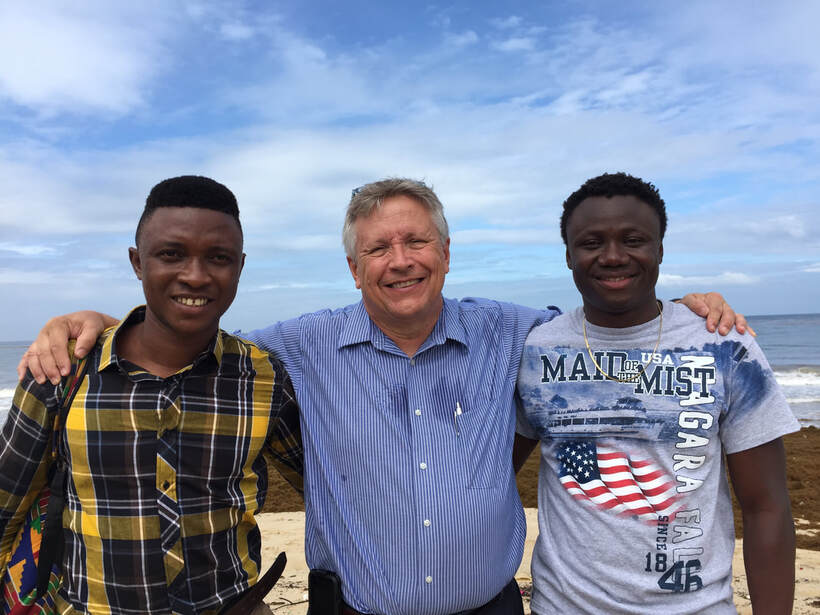 Above: Dr. Gary Gilkeson on the beach in Freetown with Dr. Aruna Stevens (left) and HCW Assistant Director for Mission Advancement Mohamed “Nabs” Nabieu. At the time of the photo, Nabs was Child Reintegration Centre Director. Above: Dr. Gary Gilkeson on the beach in Freetown with Dr. Aruna Stevens (left) and HCW Assistant Director for Mission Advancement Mohamed “Nabs” Nabieu. At the time of the photo, Nabs was Child Reintegration Centre Director. Prior to 10 years ago, not in my wildest dreams did I envision myself being involved with Mercy Hospital or the Child Reintegration Centre. I am a rheumatologist, and research in lupus is my career path. Twenty odd years ago, when I moved from Duke University to Medical University of South Carolina, I learned about a unique group of African Americans living on the Sea Islands of South Carolina and Georgia, called the Gullah or Geechee. It became evident that Gullah individuals had a high prevalence of lupus, with significant morbidity and mortality. At that time, I also learned that the Gullah were forcibly brought to America, particularly to South Carolina, due to their rice growing skills (then the cash crop in Charleston). Sierra Leone to Senegal was the primary region in West Africa from which the Gullah were taken. After the civil war, the Gullah remained on the Sea Islands with very little interaction with others on the mainland. In the meantime, papers were published that suggested lupus was rare in West Africa. Given that, as in almost all diseases, lupus is believed to be a result of a genetically susceptible host responding to an environmental factor (infection, toxin) unleashing the immune system to attack the body, and assuming that the Gullah would genetically still be similar to their ancestral forebears, we embarked on a program to define genetic and potential environmental differences in the Gullah and Sierra Leoneans. Through United Methodist Volunteers In Mission (UMVIM), I was connected with Dr. Darius Magee who is a retired gynecologist in Texas. He had established the West Africa Fistula Foundation in Bo soon after the civil war ended. He worked out of the Bo Government Hospital diagnosing and repairing urethral and bladder damage that occurred during childbirth. Given that he was treating young women, who are at the highest risk for lupus, I accompanied him on three different trips to Bo from 2009 to 2013. I helped out in the ER and clinic at the Government Hospital, while trying to figure out how to address our research questions. It soon became evident that there was no way to screen the population in Sierra Leone, for it would be unethical, since we could not provide them with long term treatment. We were able, however, to acquire blood samples and subsequent DNA samples from a number of individuals, testing them at the same time for malaria and providing them treatment for malaria if they were positive. During the last visit to Sierra Leone, I learned of Mercy Hospital and went there for a visit with a colleague. An HCW UMVIM team had arrived the night before and the team leader graciously invited us in for a tour and offered for us to stay for lunch (my first interaction with Fudia). We toured the hospital and the Naval Research Laboratory where I met Rashid, and we began a collaborative effort for genetic studies along with the Helen Keller Foundation. Each time I went to Bo, I became more and more tied to it and the wonderful people of Sierra Leone. I investigated Helping Children Worldwide and was greatly impressed with the programs they had in Bo. Mary Ann, my wife, also became interested in doing more with HCW. We were able to get our local church, Bethel United Methodist Church, to become a partner church. This all happened during the time of Ebola, so there were no more trips, but through Rashid we were able to send a large number of personal protective equipment to Mercy. In July of 2018, Mary Ann and I went on our first trip with a HCW team. This was also Mary Ann’s first trip to Sierra Leone. I had a feeling she would feel the draw like I did, and she was immediately overwhelmed at the multiple wonderful things going on in Bo. The eleven others on our team became best friends with whom we still communicate. Of course we met (then-CRC Director) Nabs, his wife Kim, JJ, JB, Rosa, Fudia, Jinnah, Sister Augusta and Dr. Amara. We had taken a large amount of medical equipment and supplies with us donated by MUSC. As many of you are aware, we hated to leave. In July of 2019 we returned for our second trip along with two other Bethel members: Misti, a PhD nutritionist and diabetes educator, and Beth, a neonatal ICU nurse. We reunited with Sharon from Texas, and again were just overwhelmed by our experience on outreach, visiting a village where our church had provided funds for drilling a well, and seeing the children we are sponsoring. We were on the team for July of 2020, but regrettably it was canceled due to COVID-19. Beth and Misti were planning to return as well. Meanwhile, Mary Ann had been asked to join the Board of Directors and she accepted. We have enjoyed meeting all the other believers and hosting many of them at our home. I have biweekly calls with Dr. Stevens to help in whatever way I can, especially with the COVID-19 virus just hitting there. Mary Ann and a friend of ours have made COVID-19 masks with the outer material made of fabric we brought back from Sierra Leone. The masks are a big hit. In the end, my experiences in Bo and with HCW are some of the most meaningful experiences in my life. It is especially fun having this relationship for Mary Ann and I to enjoy and support together. We realize we are not changing the world, but for the children we sponsor, and with the equipment and expertise we provide, we believe we are at least changing the world for a few folks in Bo. 17 month old Mohamed, admitted to Mercy Hospital with severe anemia caused by malaria, would die if he didn't receive a blood transfusion, but his O negative blood type is extremely rare and none of his family members could donate. Nurse Karen Hall, who was serving with the July UMVIM team, shares his blood type and gladly volunteered to donate. The family was so grateful to Karen, who truly saved their son's life. Read Karen's story:
"I was all set to go on our team's second medical outreach. I had some time on my hands, so I was visiting with (Medical Programs Field Director Specialist) Kim Sprout at the MTC. Gary, our team doctor walked in pointed at me and said, "what's your blood type?" I told him O negative and he looked like he had seen a ghost. He explained that there was a baby with severe malaria and needed a transfusion. It was virtually impossible to find O negative, and if they found it, it would not make it to Mercy in time to save the baby. Apparently only 7% of the world's population has 0 negative blood type. Gary was not expecting any of the team to be a match. Gary asked me if I was willing to donate, and of course I was. Anyone on our team would have been. Gary said he would let Mercy know and let me know what they said. He must have run, because in no time he was back at the MTC. I went to the lab and George (the Mercy lab manager) did a type and screen on my blood and the next thing I knew the donation had begun. Before I knew it, the donation was complete. I went over to Mercy to let the CHO Deborah know I was finished. I started getting sick and she sent me upstairs to rest. Over the next few hours, I found myself praying with all my heart that the baby would live, that the transfusion would be successful. Before I left the hospital I peeked in on the baby. The mom looked worried out of her mind. I know that look. The baby was receiving the transfusion at that time and was not looking so good. I prayed with all my heart that this would be a story of life. As we know HIs ways are not our ways and our hearts desires are not always the answer. The spirit continues to whisper the same familiar thing..."trust me." That evening Gary had received a good report from Mercy and was very hopeful the transfusion was a success. Later that night there was a complete lunar eclipse, a blood moon. It was only visible in the Southern Hemisphere. I felt like I was in a living Bible story. So often it is hard to see our purpose. To "know that we know that we know" that we are called to something or somewhere. This one time, God gave my heart a beautiful gift too. He gave me something that only I could do at that time. He used something that He gave me when He knit me together in my mother's womb. I think we all have times in our lives where we struggle with our purpose. I have been in that season for a while now. Not on that day or that night...and because of that beautiful gift, not today. I know my purpose, to follow HIS voice. Sweet little Mohamed who was 17 months old went home the following Monday. His family was full of thanks. It was humbling to be thanked for something that had blessed our entire team. Mohamed's family is Muslim, and I love it that on that day we were all one. In it together. Saving each other." |
Follow us on social media
Archive
July 2024
Click the button to read heartfelt tributes to a beloved Bishop, co- founder of our mission!
Post
|
Helping Children Worldwide is a 501 (c) 3 nonprofit organization | 703-793-9521 | [email protected]
©2017 - 2021 Helping Children Worldwide
All donations in the United States are tax-deductible in full or part. | Donor and Privacy Policy
©2017 - 2021 Helping Children Worldwide
All donations in the United States are tax-deductible in full or part. | Donor and Privacy Policy

